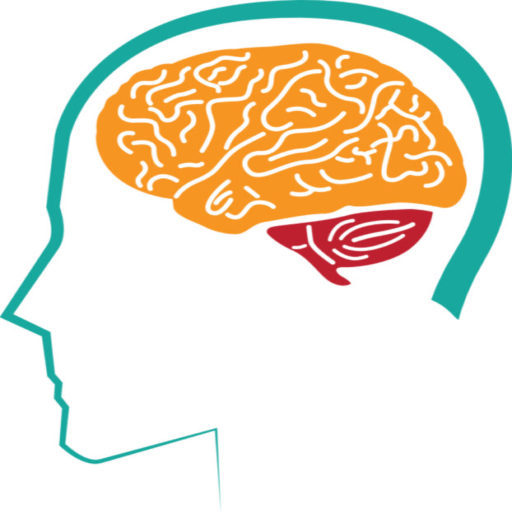Introduction
Teenage years are a period of growth, self-discovery, and change, but they can also be marked by emotional challenges. One of the most prevalent mental health issues that adolescents face is depression. Understanding teenage depression is crucial for parents, caregivers, and educators to provide appropriate support and intervention. In this article, we will explore the signs and symptoms of teenage depression, effective communication strategies for parents and caregivers, and the importance of early intervention and treatment options.
Recognizing Signs and Symptoms
Teenage depression can manifest differently than adult depression, and adolescents may not always express their feelings openly. Recognizing the signs and symptoms is essential for early intervention. Some common signs of teenage depression include:
1. Persistent Sadness or Irritability
Depression often presents as prolonged periods of sadness, moodiness, or irritability. Adolescents may seem consistently unhappy, even when there’s no apparent reason.
2. Loss of Interest or Pleasure
Teens with depression may lose interest in activities they once enjoyed. Hobbies, sports, or social interactions that used to bring joy may no longer hold appeal.
3. Changes in Appetite and Sleep Patterns
Depression can affect appetite and sleep. Some adolescents may experience significant changes in eating habits, resulting in weight loss or gain. Sleep disturbances, such as insomnia or excessive sleeping, can also occur.
4. Fatigue and Low Energy
Teens with depression may often complain of feeling tired or lacking energy. Even simple tasks can become overwhelming.
5. Difficulty Concentrating
Depression can impact cognitive function, making it challenging for adolescents to concentrate on schoolwork or other tasks. Their academic performance may suffer.
6. Withdrawal from Social Activities
Depressed teenagers may withdraw from friends and social activities. They may isolate themselves, preferring to spend time alone in their rooms.
7. Feelings of Worthlessness or Guilt
Feelings of worthlessness or guilt are common in teenage depression. Adolescents may be excessively self-critical and blame themselves for their emotional state.
8. Physical Complaints
Some teens with depression may express physical complaints such as headaches or stomachaches, even when there’s no clear medical cause.
Effective Communication Strategies for Parents and Caregivers
When a teenager is experiencing depression, open and empathetic communication is crucial. Here are some strategies for parents and caregivers to effectively communicate with depressed adolescents:
1. Create a Safe Space
Establish an environment where your teenager feels safe and comfortable sharing their feelings without judgment. Let them know you are there to listen and support them.
2. Be an Active Listener
Listen attentively and ask open-ended questions to encourage your teenager to express their thoughts and emotions. Avoid interrupting or offering immediate solutions.
3. Empathize and Validate Feelings
Acknowledge your teenager’s feelings and validate their experiences. Let them know it’s okay to feel the way they do and that you are there to help.
4. Avoid Blame and Criticism
Avoid placing blame or criticizing your teenager for their emotions or behavior. Depression is an illness, not a choice.
5. Respect Privacy
Respect your teenager’s privacy while maintaining open communication. Adolescents may be more willing to talk when they feel their boundaries are respected.
6. Encourage Professional Help
If you suspect your teenager is depressed, encourage them to seek professional help. Offer to assist in finding a mental health provider and attending appointments.
7. Stay Informed
Educate yourself about teenage depression, its treatment options, and available resources. Being informed will help you provide better support.
Treatment Options and the Importance of Early Intervention
Teenage depression is treatable, and early intervention is crucial for a successful recovery. Treatment options for teenage depression may include:
1. Therapy/Counseling
Psychotherapy, such as cognitive-behavioral therapy (CBT) or interpersonal therapy (IPT), is often the first-line treatment for teenage depression. Therapy helps adolescents identify and address negative thought patterns and learn coping strategies.
2. Medication
In some cases, medication prescribed by a mental health professional may be recommended to alleviate severe symptoms of depression. Medication should be closely monitored and used in conjunction with therapy.
3. Lifestyle Changes
Encourage your teenager to adopt a healthy lifestyle. Regular exercise, a balanced diet, and adequate sleep can have a positive impact on mood.
4. Support Groups
Support groups for teenagers with depression provide a sense of community and shared understanding. They offer a space for adolescents to connect and learn from others facing similar challenges.
5. Family Therapy
Family therapy can be beneficial in addressing family dynamics and improving communication within the family unit. It helps parents and caregivers support their teenager’s recovery effectively.
6. School-Based Support
Schools can play a vital role in supporting depressed teenagers. Teachers and counselors can provide accommodations and emotional support to help students succeed academically.
The importance of early intervention cannot be overstated. Untreated teenage depression can lead to academic problems, substance abuse, self-harm, and an increased risk of suicide. Seeking help as soon as symptoms are recognized is crucial for the well-being of the adolescent.
Conclusion
Teenage depression is a serious and treatable mental health condition that affects many adolescents. Recognizing the signs and symptoms, engaging in open and empathetic communication, and seeking early intervention are essential steps for parents, caregivers, and educators.
Depressed teenagers need support, understanding, and professional help to overcome their challenges and build a brighter future. By fostering a supportive and non-judgmental environment, we can help teenagers navigate the complexities of adolescence and mental health with resilience and hope.
References
- American Academy of Child and Adolescent Psychiatry. (2023). Depression in Teens. https://www.aacap.org/AACAP/Families_and_Youth/Facts_for_Families/FFF-Guide/Depression-In-Teens-049.aspx
- National Institute of Mental Health. (2023). Teen Depression. https://www.nimh.nih.gov/health/publications/teen-depression/index.shtml
- Mayo Clinic. (2023). Teen Depression. https://www.mayoclinic.org/diseases-conditions/teen-depression/symptoms-causes/syc-20350985
- Mental Health America. (2023). Teen Depression. https://www.mhanational.org/conditions/teen-depression
- American Psychological Association. (2023). Depression in Children and Adolescents. https://www.apa.org/topics/depression/children

